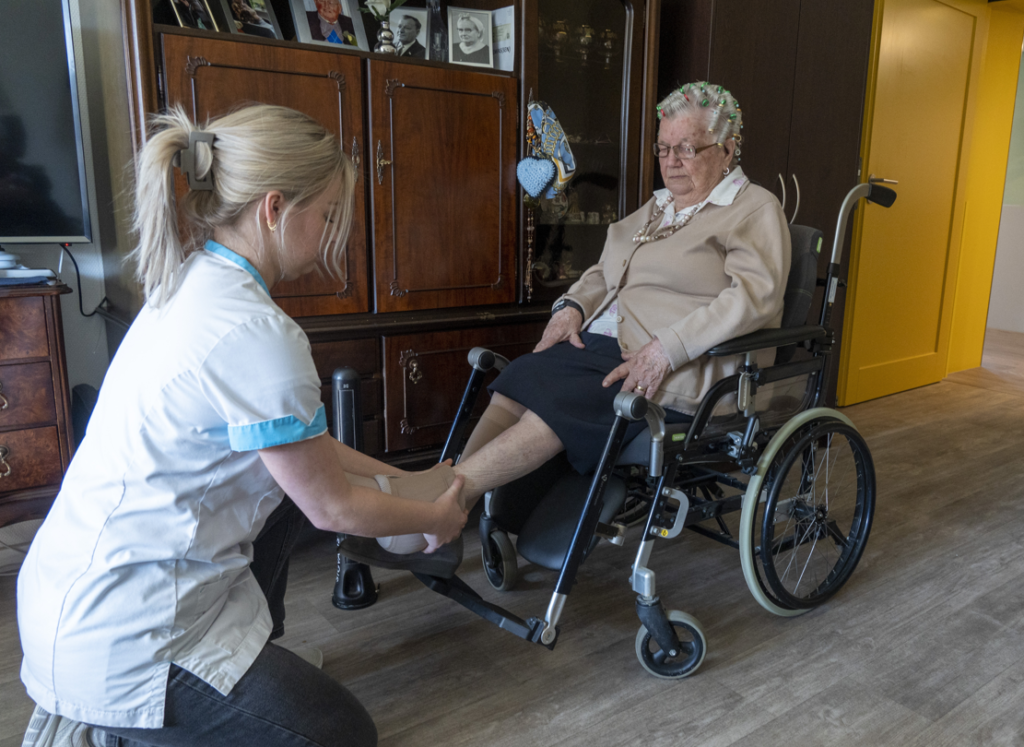When the salaries of employees in homes for the elderly across Slovenia were increased during the previous Janša government, this caused quite a stir in the media, because they believed this posed a risk of an increase in care fees for the residents. However, their concern at the time was unnecessary, as this did not happen – after the government intervened. But now that it is becoming clear that there will indeed be an increase in care fees in the upcoming months, the media are largely staying silent on the matter, and those in the coalition ranks who were worried about this during the previous government are now “miraculously” not saying a word about it.
If the previous government allocated 16 million euros of the state budget to this issue, in order to ensure that there was no price increase in the provision of care, it now seems that under the government of Robert Golob, a price increase for care fees is inevitable. The homes for the elderly say that the rise in fees is the result of the government not subsidising their costs. Since it is clear that this will place an additional financial burden on the residents of the homes for the elderly, as well as their relatives, they call for the continuation of co-financing from the budget.
Zlata Marin, the Head of General service of the Ljubljana Residential Home Centre, told the media outlet N1 that the price increase is planned because “the state reimbursement of material and labour costs will no longer be available.” “The amount of these increases has a significant impact on our business. At the moment, our institution is already showing a negative operating result in terms of revenue from care fees,” she stressed, explaining that the increase in the minimum wage and the rise in public sector wages have led to an increase in labour costs over the past year. In addition, food and electricity prices have risen even more.
“The cost of groceries is about 30 percent higher this year than in the same period last year, and the cost of electricity is about 200 percent higher,” she explained, illustrating that while last year they paid an average of 8,300 euros a month for electricity, this year they are paying around 25,600 euros a month. Marin said it was not yet clear how high the increase in the price would be.
The cap on utility increases of up to 4.5 percent expires at the end of June. In March, the Ministry of Solidarity-Based Future, headed by Simon Maljevac, founder of the left-wing non-governmental organisation the 8th of March Institute (Inštitut 8. marec) and a member of the Left party (Levica), informed the homes for the elderly that they would be able to make an extraordinary adjustment to the level of care fees on the 1st of July. By the end of this week, the homes for the elderly should have received all the necessary instructions on how to do that. The prices are allegedly already being recalculated in the homes for the elderly, and then they will have to also be approved by the Councils of the institutions, which are obliged to ensure that the homes for the elderly are not operating at a negative level.
Several homes for the elderly have already confirmed the increase in fees
Denis Sahernik, the Secretary of the Community of Social Institutions, said that if homes for the elderly want to “meet all their obligations to suppliers of goods and services and also to their employees,” it is impossible to avoid adjusting the prices of care fees. He said that they are aware of the financial implications of the measure for residents and their relatives, and therefore believe that until the new long-term care system is fully in place, funding should be provided from the budget. According to Sahernik, it is not yet clear which homes will decide to raise their care fees, as this is a decision that has to be made by each individual provider. However, several homes have already confirmed the price increase for the media outlet N1.
The situation could have been completely different if the current government had not gone ahead with the withdrawal of the Long-Term Care Act, which was adopted during the Janša government. Under that law, recipients of care in homes for the elderly would have been obliged to pay only for accommodation and meals this year. According to their calculations, this would mean that those who pay more than 1,500 euros a month would pay only half as much. Before the referendum, members of the Golob government claimed that they would ensure that a better long-term care law was drafted, but this is still being coordinated. Ideally, the new law could enter into force in June 2025, which is much later than the previous government had envisaged, which was for the new law to be implemented this year.
Sara Kovač


